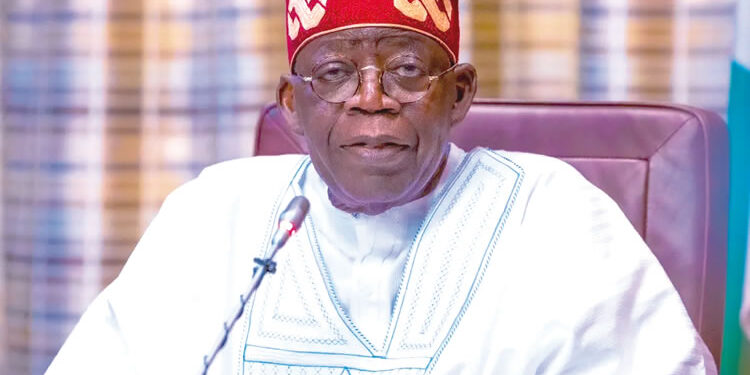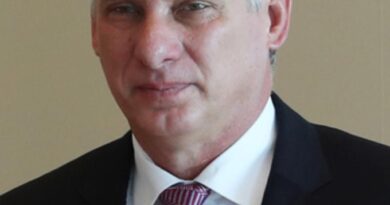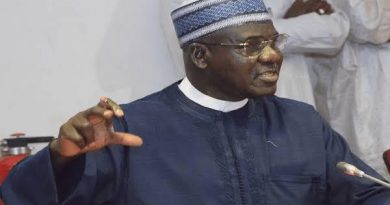At 73, President Tinubu’s Acts Of Compassion In Leadership-By Tunde Rahman
Empathy is a defining feature of leadership and one of the qualities a good leader must have. How a leader acts at every point always gives us a sense of how he has internalised and embraced this important virtue. On Tuesday, February 4, President Bola Tinubu approved a whopping N758 billion to settle longstanding pension liabilities under the Contributory Pension Scheme for federal workers nationwide. The approval, given during a Federal Executive Council meeting in Abuja, was a historic decision. It marked a watershed moment in Nigeria’s pension administration. It was the first time the Federal Government would commit funds to the Pension Protection Fund, a statutory provision designed to augment pensions for low-income earners.
Apart from clearing all pension increases since 2007, President Tinubu’s intervention also settled the shortfall in university professors’ pensions, ensuring retired university lecturers receive their full salary as a pension.
Reacting to that decision, PenCom’s Director-General, Ms Omolola Oloworaran, expressed appreciation to the President “for his bold and compassionate leadership in resolving these critical pension issues.” The fund had been left unfunded since its inception in 2014. Oloworaran has done a yeoman’s job thus far as PenCom boss. Among other things, she had brought this pension matter to President Tinubu’s attention.
Veteran labour activist Comrade Issa Aremu, the Director-General of Michael Imoudu National Institute for Labour Studies, described the decision as a timely act of compassion, statesmanship and good governance. On the sideline of the 2025 Ramadan Annual Lecture organised by the Nigeria Television Authority (NTA) Ilorin, Comrade Aremu said while successive governments accumulated pension obligations, it was commendable that President Tinubu boldly cleared the slate of pension arrears.”The N758 billion is the most impactful measure of the Renewed Hope Agenda in the labour market after the 2024 National Minimum Wage Act,” he said. Aremu urged state governments to emulate the Federal Government in settling the claims of pensioners in the states as millions of retired workers suffered avoidable delays and low pension incomes.
Federal or state workers will significantly reduce their propensity for cutting corners over fear of life after retirement if they are sure of their pensions. This is a way of fighting systemic corruption. Indeed, those who have experienced or witnessed the agony pensioners endure before receiving their pensions after years of service to their fatherland will understand the importance of the President’s decision.Instructively, President Tinubu’s action was not driven by a quest for public acclaim. It stems from a profound conviction shaped by understanding what leadership entails.
The President turned 73 on Saturday, March 29. The celebration was low-key with special prayers in Lagos and Abuja. He had urged Nigerians to join him in offering prayers for the country and himself as a way of celebrating his birthday. President Tinubu will also clock two years in office in exactly two months from now.
Since the inception of his administration, he has ticked all the right boxes in offering leadership driven by compassion and committed service, as it should be in the corporate world and government. Compassionate leadership contributes to positive organisational cultures conducive to personal and professional success. Compassionate leadership is a cornerstone of intelligent leadership that requires self-awareness, emotional intelligence, and the willingness to lead by example. As renowned psychologist Jasmin Mogahed rightly noted, “Compassion is to look beyond your pain, to see the pain of others.”
Apart from the N758 pension bond, President Tinubu has taken many remarkable decisions since May 29, 2023, in which he has demonstrated rare acts of compassion and good leadership, which is worth enumerating. Many would easily cite the students’ loan initiative for indigent students being implemented by NELFUND and CREDITCORP, which offers credit facilities to Nigerians to own consumer products and other assets. They will talk about the new N70,000 National Minimum Wage and the approval of three yearly review instead of the earlier five years, and the huge sums of money going to the states in the name of monthly allocation, which he told the governors to “spend on the people, not to spend the people”. However, several other interventions exist besides these.
One crucial example is President Tinubu’s decision to subsidise 80% of the cost of kidney dialysis treatment for all Nigerians. According to health officials, this unprecedented effort has seen kidney dialysis treatment crash in over ten Federal Medical Institutions across the country from an average of N50,000 per session to N12,000, making renal care affordable for multitudes of Nigerians. The participating Institutions include FMC Ebute-Metta Lagos; FMC Jabi, Abuja; UCH Ibadan; FMC Owerri; UMTH Maiduguri; FMC Abeokuta; LUTH Lagos; FMC Azare; UBTH Benin, and UCTH Calabar, among others.
The second, which is equally notable, is the establishment of three funds totalling N200 billion to support businesses across Nigeria, namely the Presidential Conditional Grant Scheme (PCGS), the FGN MSME Intervention Fund and the FGN Manufacturing Sector Fund. The Bank of Industry (BOI) has been appointed as the executing agency of the funds, vested with the responsibility of administering the programme. The Presidential Conditional Grant Scheme is a N50 billion-grant plan to support eligible Nano Business owners. It will be disbursed to a minimum of 1,000 beneficiaries, especially women and youths, per Local Government Area in the 774 LGAs of the country and the six area councils in the Federal Capital Territory. According to the Bank of Industry, the target nano businesses include traders, food vendors, ICT businesses, transporters, artisans, and creatives.
The third of such intervention that is also worthy of mention is the President’s approval of automatic employment for 774 National Health Fellows, a pivotal initiative led by the Federal Ministry of Health to foster sustained improvements within Nigeria’s healthcare system. At the event held at State House Conference Centre, Abuja, on March 6, President Tinubu uttered soothing three words to the fellows who will monitor the Primary Healthcare Centres across the country’s 774 local government areas: “You are hired.” Those words and the health fellowship programme emphasised his administration’s commitment to strengthening the country’s healthcare system. A deafening applause from the fellows and those present at the event had greeted that declaration by Mr. President. The employment of these fellows, selected from each of the local councils, stemmed from the recommendation of the Coordinating Minister of Health and Social Welfare, Professor Ali Pate.
Offering some insights into the bold initiative and the rigorous selection process, which essentially highlights its significance, President Tinubu said: “This programme is a transformative initiative that underscores my administration’s commitment to harnessing the immense potential of Nigeria’s greatest asset—its young people. With over 60% of Nigerians under 30, we boast one of the most energetic, resourceful, and dynamic youth populations globally. This presents unparalleled opportunities to drive innovation, economic prosperity and social transformation.”
Also relevant is the Federal Government’s plan to raise N1 trillion in housing funds to boost access to mortgage and tackle Nigeria’s housing deficit. Housing sector stakeholders and Nigerians have widely applauded this plan. MOFI has raised about N250 billion to kickstart the fund, which will be given at a single-digit interest rate.
Some commentators may argue that these decisions and interventions represent the kernel of the government’s responsibilities: looking after the security and the general well-being of the people. That the Tinubu government is merely doing what is expected of it. But these policies and actions wouldn’t matter if there had not been such abject neglect of the fundamental problems for years. Critics often forget that long before now, particularly during the industrial age, the leadership paradigm of the time used to see compassion as a weakness, along with other “soft” leadership skills. Compassionate leadership is now the gold standard of intelligent, practical, and people-centric leadership. Any organization or anyone desirous of success in leadership must embrace this. President Tinubu knows this so well. Compassion had been his second nature even before he got to leadership positions. As a gift for his 73rd birthday, the President deserves commendation for embracing this ideal.
–Rahman is Senior Special Assistant to President Tinubu on Media, Publicity and Special Duties.




